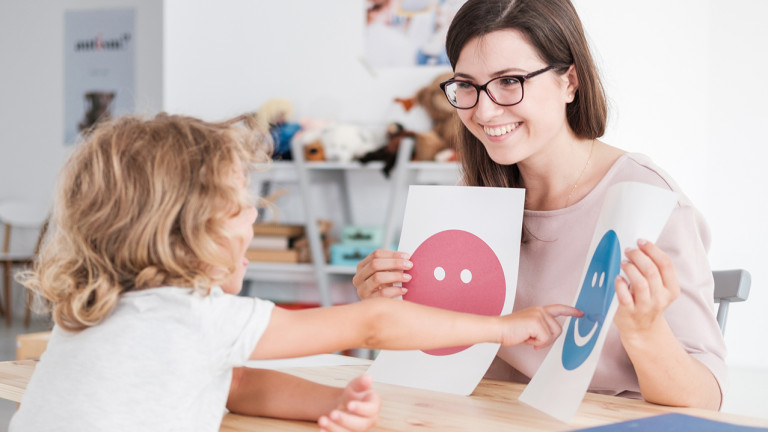
Children and adolescents are particularly vulnerable to anxiety and depression. Statistics show that 5% of all children and teens suffer from depression, with girls being twice as likely to experience it as boys. These children must receive adequate treatment on time because untreated depression can lead to more severe issues such as substance abuse, self-harm, or suicide. Fortunately, whether it’s an episode of major depressive disorder (MDD) or a generalized anxiety disorder (GAD), cognitive behavioral therapy (CBT) can help reduce symptoms associated with pediatric depression and anxiety disorders. Here are the benefits of CBT for treating depression and anxiety in children.
Improved Self-Confidence
Pediatric depression can have lasting effects on a child’s self-confidence. Kids with depression often say that they feel worthless or not good enough, and these feelings can follow them into adulthood. There is no need to allow a child to suffer when professional therapists have proven cognitive-behavioral therapy (CBT) an effective and safe way to treat pediatric depression. CBT helps kids understand their thought patterns and replace negative thoughts with positive ones leading to improved self-esteem and self-confidence.
Self-confidence in young people is a recipe for success in every aspect of life. Studies show that confident children tend to do better in school, are more likely to be leaders in social situations, and are more likely to succeed at work later in life. The best thing you can do for your child is to help them develop a healthy sense of self-worth.
Children with high confidence levels see challenges as opportunities rather than threats—and they know how to bounce back from failure. CBT does just that. With less anxiety and fewer worries about others judging them, these kids can focus on their own goals and ambitions without distractions. You can search for cognitive behavioral therapy in New Jersey for all your psychotherapy and CBT needs.
Increased Ability to Concentrate
Getting kids to sit still and focus can be a real challenge. However, CBT techniques such as mindfulness meditation can help children learn how to concentrate their attention on one thing at a time without being distracted by other thoughts or feelings. Mindfulness is an essential skill that helps children feel more in control of their emotions, especially when they feel sad or anxious.
CBT is important because an inability to concentrate can indicate depression in children. Children who have trouble concentrating may also benefit from learning coping strategies so they don’t avoid activities they enjoy because it might make them too uncomfortable.
Better Family Relationships
Children with chronic depression are often irritable and have difficulty focusing, impacting family relationships. While friends may be closer, studies show that families are more likely to fracture under pressure from a depressed family member. For example, children suffering from mental health issues like anxiety may seem out of control or act out in ways that strain their parent-child relationship.
Parents who may feel helpless or depressed while solving the situation as a problem with just mannerism can lead to more complicated issues such as drug abuse or even suicide. CBT can help both parties understand each other better and also help to treat any underlying issues. Cognitive-behavioral therapy aims not necessarily to eliminate all anxiety but rather to reduce its impact on your child’s life to better deal with whatever comes their way.
That way, they’ll be better able to handle challenges like schoolwork, friendships, and extracurricular activities. They’ll also become less dependent on you because they’ll develop skills and habits to help them cope with day-to-day stressors. In short, CBT helps kids manage stress by teaching them how to think differently about what happens in their lives and how they react to those events. In time, these coping skills become second nature — which means your kids won’t need you quite as much anymore, and your family relationships will be better!
Better quality of life
Using effective agenda-based talk therapy, cognitive-behavioral therapy (CBT) effectively treats children and adolescents with depression. Consequently, fewer kids will be on antidepressants, which may have severe side effects. By improving their depression, CBT can help kids at risk of suicide lead better lives. CBT techniques such as cognitive restructuring and exposure to feared situations are also helpful in reducing anxiety disorders in children.
Also, there’s some evidence that CBT could improve behavior problems, too. CBT will help your child achieve a balanced view of life events rather than feeling helpless and victimized by them. Kids who feel more empowered are less likely to fall into depressive or anxious ruts.
Conclusion
CBT is an effective method of treating depression and anxiety, particularly in children and adolescents. Young people also find CBT techniques more simple to understand than other therapies, making them more willing participants in their treatment. As Glenn Close said- “What mental health needs are more sunlight, more condor, and more unashamed conversation.” Give your child the present they need most, peace of mind, by contacting a professional CBT therapist near you today!
Leave a Reply